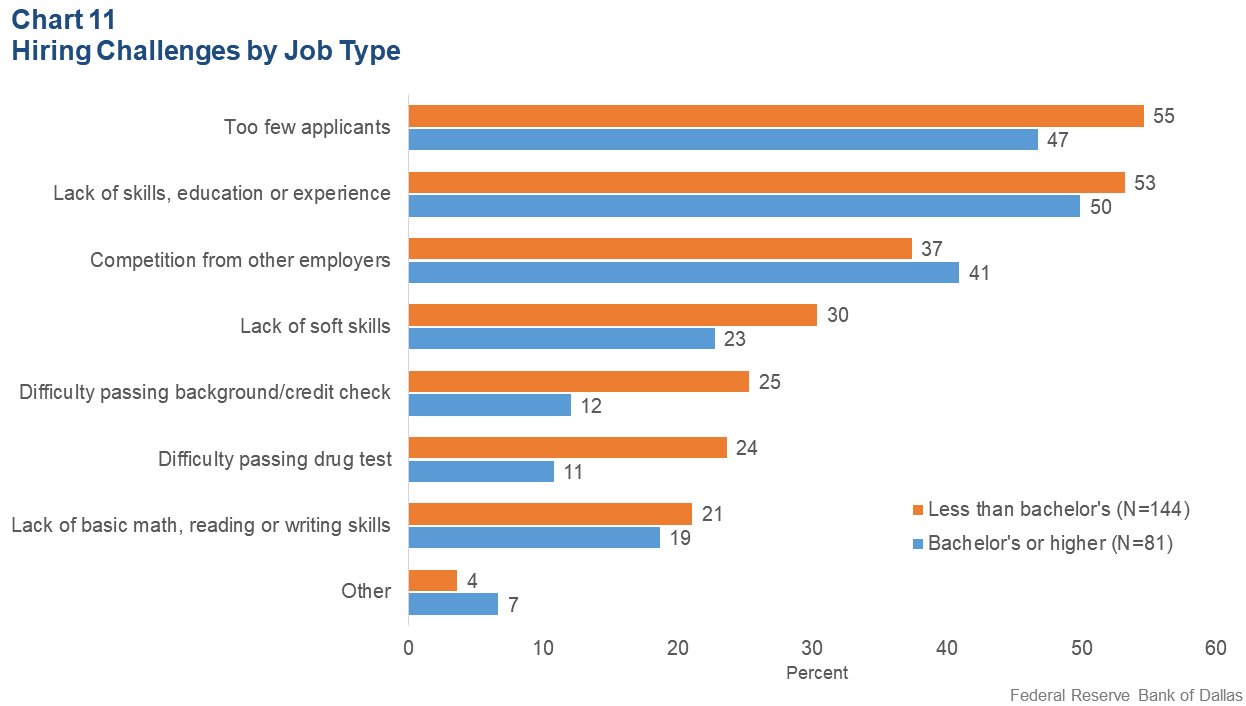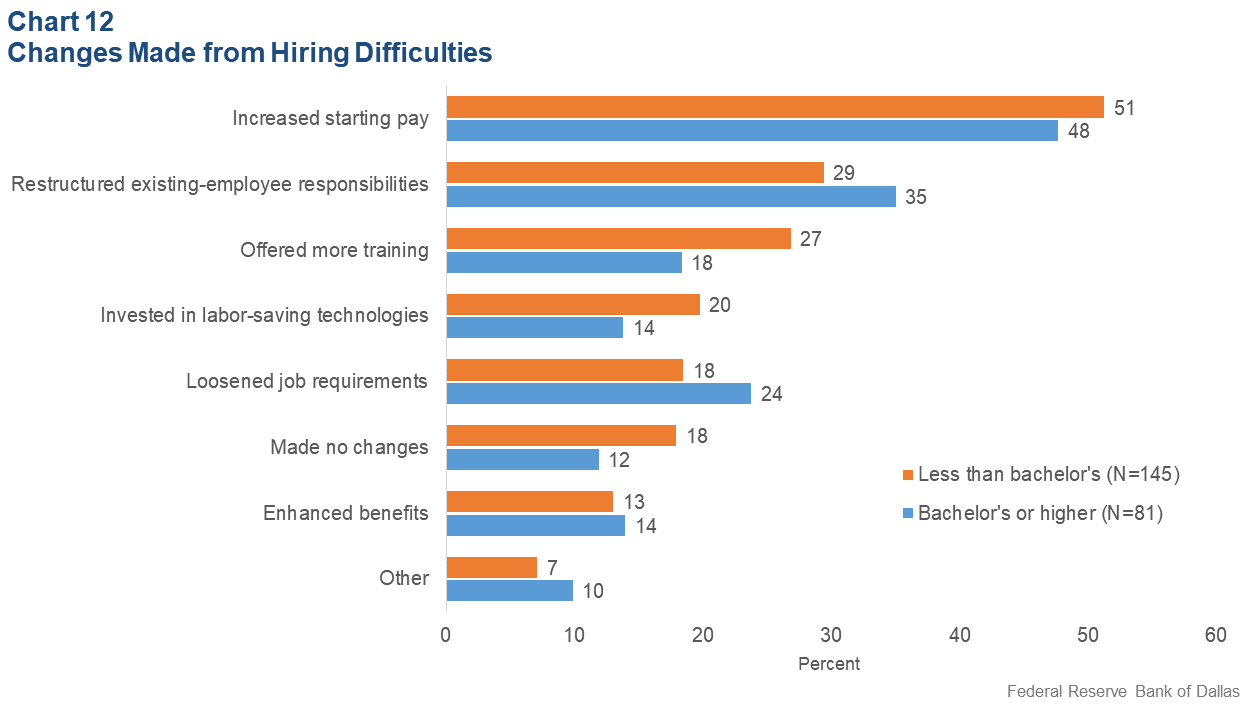Small Business Credit Survey
Employment and Hiring
Three-quarters of Texas firms attempted to hire in the 2018 survey period, up from 71 percent the previous period. The vast majority (77 percent) of open positions did not require a bachelor’s degree. Reported rates of difficulty in finding these employees are similar for both bachelor’s positions and non-bachelor’s positions, where 27 percent and 28 percent, respectively, of firms rated the search process as “very difficult.”
Digging in deeper to specific hiring challenges, Chart 11 indicates that the top two challenges for firms attempting to hire are the same for jobs requiring a bachelor’s degree and those without the requirement. However, while a shortage of applicants is first for non-college-degree jobs, for positions requiring a four-year degree, the shortage is second to a lack of job-specific skills or education. The biggest differences between the two job types are difficulty passing a background check or passing a drug test; in both hiring challenges, about a quarter of firms not looking for a college graduate report struggling, compared with just around 12 percent of firms looking for college graduates.

Coping with these hiring barriers most often led firms to increase starting pay, particularly for those seeking to fill jobs that did not require a degree (Chart 12). This seems to fit with attempts to increase the low number of applicants, the top barrier found in Chart 11. Twenty-seven percent of firms with positions not requiring a bachelor’s also offered more training to existing staff, and 20 percent not requiring a degree invested more dollars into technology that would save labor. Compared with firms hiring non-college-graduates, firms seeking four-year-degree holders were more likely to restructure responsibilities for their existing employees (35 percent) and loosen requirements for their open positions (24 percent).

For firms looking to hire, Judy Wilhelm, Northwest Texas SBDC network executive director, had some advice:
The small business owner may look to the local university or vocational school to accept an intern that could be trained with the intent of joining the company upon graduation. Your local workforce agency can help identify various talent that fits your company vision prior to your time spent searching. Review your technology status to determine if upgrades to your current technology system would allow for a more efficient operation and more available candidates with the skill set to accomplish your goals. A clear position description prior to posting or distributing information will assist in eliminating unqualified candidates while attracting those who might otherwise be overlooked. When interviewing, today’s small business owner must be willing to invest in training or retraining. When interviewing potential candidates, look for the passion, desire to learn and willingness to grow with your company.